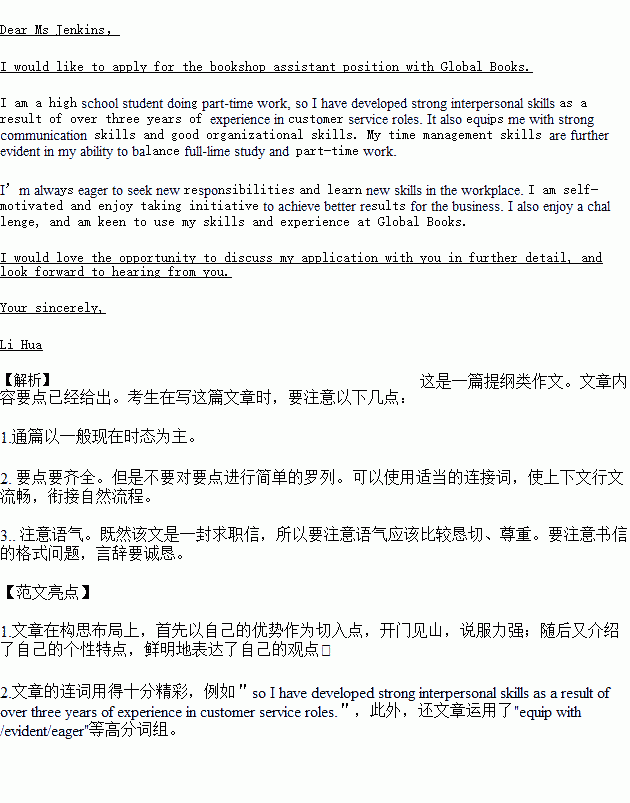题目内容
假定你是李华。过去三年一直利用业余时间打工,你想在高考后去一家国际书店(Global Books)兼职。请给书店经理Ms Jenkins写一份英文短信。
要点包括:
1. 有客户服务经验;
2. 有很强的语言、人际交流和组织技能;
3. 希望通过在Global Books的工作掌握更多技能。
注意:
1. 词数100左右;
2. 可适当增加细节,以使行文连贯;
3. 开头和结尾已写好。
Dear Ms Jenkins,
I would like to apply for the bookshop assistant position with Global Books.
____________________________________________________________________________________________
____________________________________________________________________________________________
____________________________________________________________________________________________
____________________________________________________________________________________________
____________________________________________________________________________________________
________________________________________________________________________
I would love the opportunity to discuss my application with you in further detail, and look forward to hearing from you.
Your sincerely,
Li Hua

